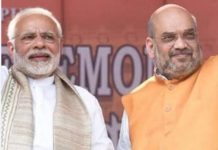
A bunch of individuals heaved a huge sigh of relief when the capital’s lower court said that Delhi Police had no case against 33 of the 42 people accused in the IPL matchfixing scandal of 2013 (the other nine are foreign nationals and were not under trial in India). The three cricketers — S Sreesanth, Ankeet Anil Chavan and Ajit Chandila — were elated. Others who were happy included officials of the Board of Control for Cricket in India (BCCI) and N Srinivasan, head of the International Cricket Council, his cronies and loyalists.
For people like Gurunath Meiyappan, Srinivasan’s son-in-law, and Raj Kundra, the former part-owner of Rajasthan Royals, the judgment was godsent. The same was the case with Rajasthan Royals and Chennai Super Kings, the two teams in the Indian Premier League (IPL ) that were recently suspended for two years by the Supreme Court. Now, all those who were on the backfoot, facing a barrage of menacing bouncers, could claim again that IPL was always ‘squeaky clean’.
However, there is a huge caveat. Despite the sessions court order of 25 July 2015 by Justice Neena Bansal Krishna, the three cricketers, along with Srinivasan, Meiyappan, Kundra and the two IPL franchisees can still be deemed guilty for four reasons. This is why the BCCI upheld the ban on the three cricketers.
One, the country’s highest court, Supreme Court (SC), concluded that they had committed several wrongs. The stature of apex court-appointed committees, Justice Mudgal Committee and Lodha Committee, which indicted them, is higher than that of the sessions court.
Two, the accused mentioned above violated several rules related to corruption, illegal betting and matchfixing that were included in their contracts with the BCCIand IPL governing council. Bringing ‘disrepute to the game of cricket’ allows the Board to morally and legally ‘fix’ the accused. This was the basic point raised by the sc, and Mudgal and Lodha Committees.
Three, the case in the lower court dealt with ‘criminal’ consequences, and not the civil ones. Even if a high court or the sc absolves the accused cricketers and bookies of any criminal intent in the future, it will not dilute the past SC orders against Srinivasan, Meiyappan, Kundra and the three cricketers.
~Also Read~
[egpost postid=”249131″ byline=”false”]
Finally — and this is a crucial element that has escaped most critics and observers — Judge Krishna found several failures on the part of the three cricketers. She made a few disparaging remarks against the latter. However, her conclusion was that these misdemeanours did not conclusively prove that they were guilty under the relevant sections of the Indian Penal Code or Maharashtra Control of Organised Crime Act (MCOCA) that were invoked by Delhi Police.
HIGHER VS LOWER COURT
It is ironic that while the sc penalised cricketers, officials, teams and team owners, a lower court found that there wasn’t enough evidence against the cricketers. Even worse, the latter felt that there wasn’t a case against the betters and bookies who were arrested by the police. After all, it was the same evidence that Delhi Police presented to the SC- appointed Mudgal Committee (which had legal sanctity), and the sessions court. So, why did the two reach contradictory conclusions? How does one legally reconcile the inherent, deep differences between the two?
Legal experts feel that the legal standing of even a committee appointed by the SC is higher than that of the lower courts. Therefore, the weight of the conclusions reached by the Mudgal and Lodha Committees is heavier. It is akin to what the SC said several times about environmental courts before the formation of the National Green Tribunal in 2010: In several judgments, including the famous MC Mehta vs Union of India case in 1986, the apex court expressed a desire that such niche courts should possess civil and criminal jurisdiction.
Lawyers aver that although the two cases were related to match fixing in IPL , the issues before the SC-appointed committees and sessions court were quite different, involved a common cast of characters and dealt with almost the same evidence. The core concern of the Mudgal Committee was to find out if the cricketers, teams and owners breach the rules and regulations mentioned in their contracts with the BCCI or IPL . Judge Krishna was more bothered about the criminality (or otherwise) of the actions of the cricketers and bookies under the specific sections of IPC and MCOCA.
In simplistic terms, the difference is comparable to that between civil and criminal cases. Justice Mudgal had to only prove that the intent was wrong; he was, in a way, bothered about the morality of the conduct of individuals. However, Judge Krishna dealt with criminalities, where the sentence could be stiff. Hence, for her, the evidence against the accused had to be water-tight. In legal parlance, the larger the crime and higher the possible sentence, the stronger has to be the evidence.
Delhi Police sought to press charges under mcoca, which is a stringent act, and prove that the bookies and cricketers were part of a larger crime syndicate headed by Dawood Ibrahim, India’s most-wanted man, and Chhota Shakeel, Dawood’s right-hand man. The police established a chart and chain-ofcommand; at the top was the Dawood-Shakeel ‘core syndicate’, followed by mega bookies, their conduits and associates, and the compromised players.
Judge Krishna wasn’t convinced about it. She said that ‘organised crime syndicate’ meant “a group of two or more persons acting either singly or collectively as a syndicate or gang indulging in activities of organised crime.” But the evidence showed that Indian authorities had filed five FIRs (first information reports) or chargesheeted Dawood and Shakeel on five occasions since 2003. Of these, four were against Shakeel and his gang members, but didn’t mention Dawood.
“All these (four) FIRs pertain to murder, extortion, (and) threat but in none of these firs it has been alleged that Chhota Shakeel was alleged to be involved in these offences as part of crime syndicate headed by Dawood. Rather, from the perusal of the firs and the chargesheets, what emerges is that Chhota Shakeel was the don and was running the independent crime syndicate along with other accused mentioned in those firs. In none of these cases, he has been shown as a part of crime syndicate with Dawood Ibrahim,” said Judge Krishna in her order.












